 |
Convert ASF to GIF
|
ASF to GIF Converter Software converts ASF files
to GIF in batch. GIF is playable in any web browsers. So you can put ASF video
on your website or blog by converting ASF to GIF. ASF to GIF Converter
Software is an all-in-one video and audio converter. The software also supports
common file format such as 3GP, H.264 AVC, MXF, MKV, DivX, etc. It could convert VOB to MPEG, MOV to OGV, BIK to AVI, 3G2 to MPEG, 3G2 to SWF, and
so on.
ASF to GIF Converter Software supports batch conversion
that enables you convert bulk ASF files to GIF at a time. The software is
fully compatible with 32-bit and 64-bit Windows 10/8/7/Vista/XP/2000.

What is ASF?
ASF stands for Advanced Systems Format. Audio and/or Video content compressed
with a wide variety of codecs can be stored in an ASF file and played back
with the Windows Media Player (provided the appropriate codecs are installed),
streamed with Windows Media Services or optionally packaged with Windows
Media Rights Manager. They often contain Windows Media Audio (.WMA) or
Windows Media Video (.WMV) data. Rather, it defines a standardized, extensible
file container that is not dependent on a particular operating system or
communication protocol, or on a particular method (such as HTML or MPEG
4) used to compose the data stream in the file. Files of ASF format support
playback from digital media servers, HTTP servers, and local storage devices.
Windows Media Audio (WMA) and Windows Media Video (WMV) are the most common
file types contained in an ASF file. Instead of specifying how (i.e. with
which codec) the video or audio should be encoded, ASF does more in the
structure of the video/audio stream which is quite similar to the function
performed by the AVI, QuickTime, or Ogg container formats. The Advanced
Systems Format (ASF) is the file format used by Windows Media. The format
does not specify how (i.e. with which codec) the video or audio should
be encoded; it just specifies the structure of the video/audio stream.
ASF is most commonly used for streaming media purposes. An ASF file consists
of three objects: a Header object containing information about the file
itself, a Data object containing the media streams, and an optional Index
object that can help support random access to data within the file. One
of the objectives of ASF was to support playback from digital media servers,
HTTP servers, and local storage devices such as hard disk drives.
 What is GIF? What is GIF?
The Graphics Interchange Format (better known by its acronym GIF) is a
bitmap image format that was introduced by CompuServe in 1987 and has since
come into widespread usage on the World Wide Web due to its wide support
and portability. The Graphics Interchange Format is defined in terms of
blocks and sub-blocks which contain relevant parameters and data used in
the reproduction of a graphic. A GIF Data Stream is a sequence of protocol
blocks and sub-blocks representing a collection of graphics. In general,
the graphics in a Data Stream are assumed to be related to some degree,
and to share some control information; it is recommended that encoders
attempt to group together related graphics in order to minimize hardware
changes during processing and to minimize control information overhead.
For the same reason, unrelated graphics or graphics which require resetting
hardware parameters should be encoded separately to the extent possible.
The linked lists used by the image data and the extension blocks consist
of series of sub-blocks, each sub-block beginning with a byte giving the
number of subsequent data bytes in the sub-block (1 to 255). The series
of sub-blocks is terminated by an empty sub-block (a 0 byte). A GIF image
can contain 2, 4, 8, 16, 32, 64, 128 or 256 colors which are stored in
a color palette or color lookup table within the image file. Each color
in the GIF color table is described in RGB values, with each value having
a range of 0 to 255. CMYK colors are not possible in GIF. Although the
GIF format has access to over 16.8 million colors, only a maximum of 256
can be referenced within a single GIF image. While this limited palette
keeps down file size and is perfectly acceptable for on-screen viewing,
it leads to posterized images when they are printed. Most preflighting
tools like PitStop can generate a warning when they encounter images with
a fixed color palette.
Convert ASF to GIF:
- Free Download ASF
to GIF Converter Software
- Install the software by instructions
- Launch ASF to GIF Converter Software
- Choose ASF Files

Click "Add Files" to choose ASF files and then add them
to conversion queue.

Choose one or more ASF files you want to convert and then click Open.
- Choose "to GIF Animation"
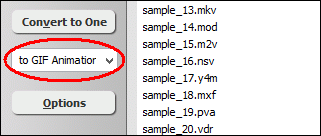
- [Optional, for advanced user]
Set GIF Conversion Parameters
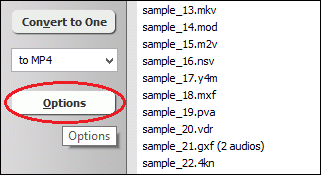
If you want to change output GIF attributes such as frame rate, video size, please
click "Options".
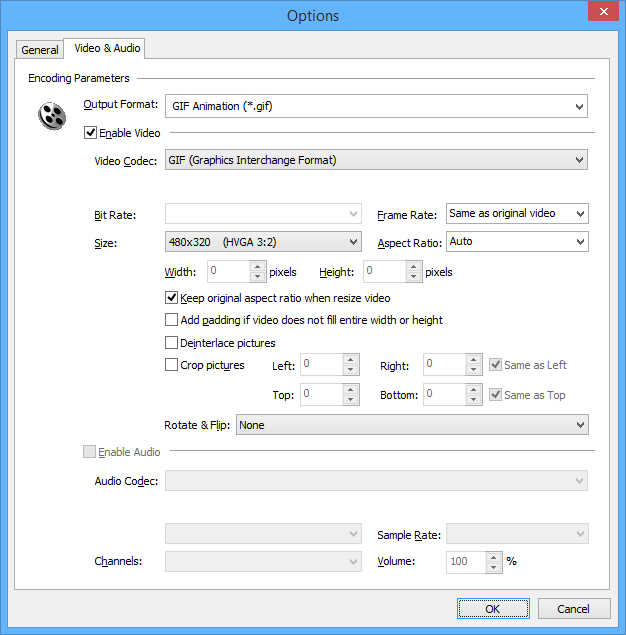
And then, switch to tab "Video & Audio" and choose "GIF
Animation (*.gif)" at "Output Format", and then you
can set frame rate and video size, crop pictures, and rotate/flip video.
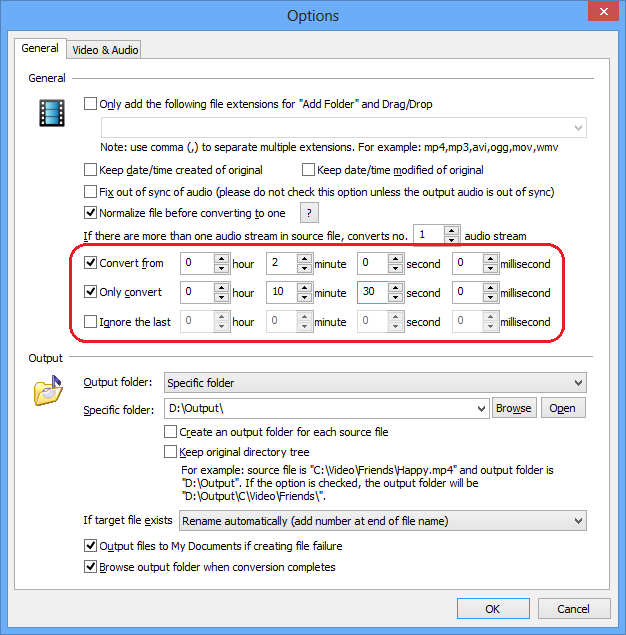
If you just want to convert a part of ASF, please switch to tab "General",
and then set beginning and end position.
- Convert ASF to GIF
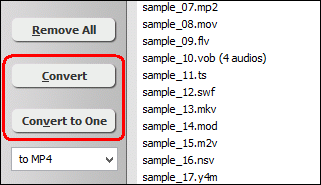
Click on "Convert" to convert ASF files to GIF animation;
alternatively, click on "Convert to One" to convert all
files in list and combine to a single one GIF file.

The software is converting ASF files to GIF format.
- Play and Browse GIF File
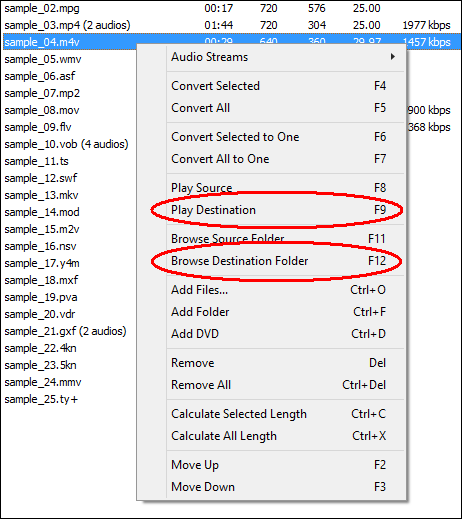
When conversion completes, you could right-click on converted file and choose
"Play Destination" to play the outputted GIF file; or choose "Browse
Destination Folder" to open Windows Explorer to browse the GIF file.
Top
ASF to GIF Converter Software offers free trial for evaluating the software.
If you're looking for a freeware, please remember a lot of freeware is
not professinal. And some freeware bundles with adware or malware that might harm
your system.
ASF to GIF Converter Software is 100% clean and
safe to install. It's certified by major download sites.

ASF to GIF Related Topics:
|

